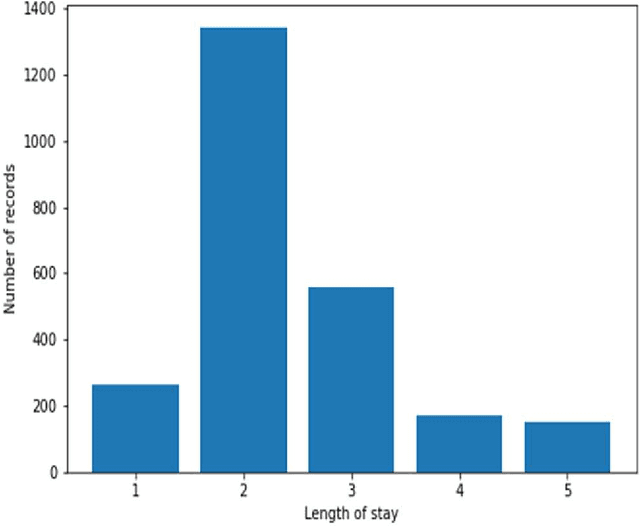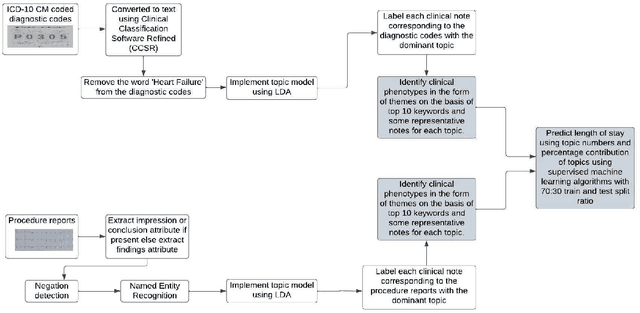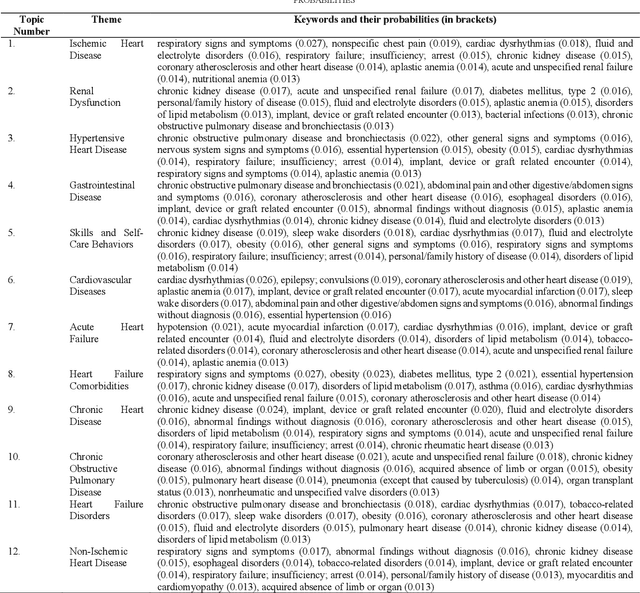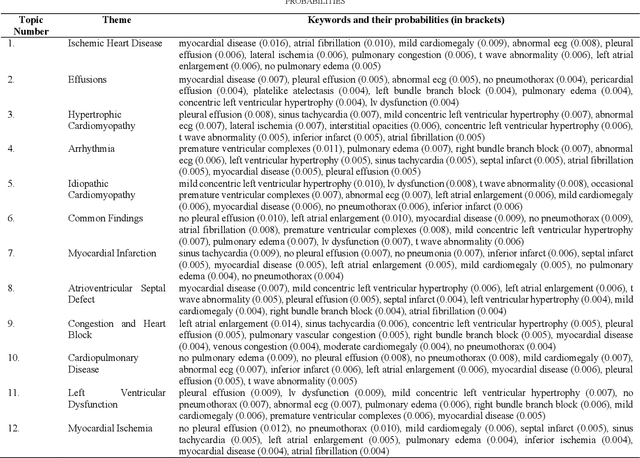Mining Themes in Clinical Notes to Identify Phenotypes and to Predict Length of Stay in Patients admitted with Heart Failure
Paper and Code
May 30, 2023



Heart failure is a syndrome which occurs when the heart is not able to pump blood and oxygen to support other organs in the body. Identifying the underlying themes in the diagnostic codes and procedure reports of patients admitted for heart failure could reveal the clinical phenotypes associated with heart failure and to group patients based on their similar characteristics which could also help in predicting patient outcomes like length of stay. These clinical phenotypes usually have a probabilistic latent structure and hence, as there has been no previous work on identifying phenotypes in clinical notes of heart failure patients using a probabilistic framework and to predict length of stay of these patients using data-driven artificial intelligence-based methods, we apply natural language processing technique, topic modeling, to identify the themes present in diagnostic codes and in procedure reports of 1,200 patients admitted for heart failure at the University of Illinois Hospital and Health Sciences System (UI Health). Topic modeling identified twelve themes each in diagnostic codes and procedure reports which revealed information about different phenotypes related to various perspectives about heart failure, to study patients' profiles and to discover new relationships among medical concepts. Each theme had a set of keywords and each clinical note was labeled with two themes - one corresponding to its diagnostic code and the other corresponding to its procedure reports along with their percentage contribution. We used these themes and their percentage contribution to predict length of stay. We found that the themes discovered in diagnostic codes and procedure reports using topic modeling together were able to predict length of stay of the patients with an accuracy of 61.1% and an Area under the Receiver Operating Characteristic Curve (ROC AUC) value of 0.828.
 Add to Chrome
Add to Chrome Add to Firefox
Add to Firefox Add to Edge
Add to Edge